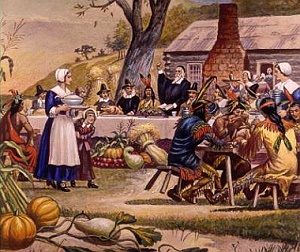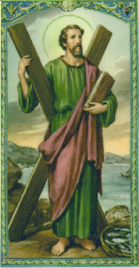 Dear readers, Catholic Online was de-platformed by Shopify for our pro-life beliefs. They shut down our Catholic Online, Catholic Online School, Prayer Candles, and Catholic Online Learning Resources—essential faith tools serving over 1.4 million students and millions of families worldwide. Our founders, now in their 70's, just gave their entire life savings to protect this mission. But fewer than 2% of readers donate. If everyone gave just $5, the cost of a coffee, we could rebuild stronger and keep Catholic education free for all. Stand with us in faith. Thank you. Help Now >
Dear readers, Catholic Online was de-platformed by Shopify for our pro-life beliefs. They shut down our Catholic Online, Catholic Online School, Prayer Candles, and Catholic Online Learning Resources—essential faith tools serving over 1.4 million students and millions of families worldwide. Our founders, now in their 70's, just gave their entire life savings to protect this mission. But fewer than 2% of readers donate. If everyone gave just $5, the cost of a coffee, we could rebuild stronger and keep Catholic education free for all. Stand with us in faith. Thank you. Help Now >
Deal W. Hudson: Evangelical Catholicism is Nothing New!
FREE Catholic Classes
Although it is a positive sign that George Weigel has published a book extolling the need for Evangelical Catholicism, the fact is that this movement has been evident for nearly a half century. Indeed, most of the new growth in the Church in these fifty states can be traced to various apostolates that have combined into a virtual coalition of Catholics who speak of their faith with a zeal markedly different from mainstream practicing Catholics.
Highlights
Catholic Online (https://www.catholic.org)
2/17/2013 (1 decade ago)
Published in U.S.
Keywords: Evangelical, Evangelical Catholicism, George Weigel, Evangelical Catholics, living faith, conversion, New Evangelization, Deal
P>WASHINGTON, DC (Catholic Online) - Although it's a positive sign that George Weigel has published a book extolling the need for Evangelical Catholicism, the fact is that this movement has been evident for nearly a half century. Indeed, most of the new growth in the Church in these fifty states can be traced to various apostolates that have combined into a virtual coalition of Catholics who speak of their faith with a zeal markedly different from mainstream practicing Catholics.
What I refer to as a virtual coalition owes its existence primarily to the leadership of John Cardinal O'Connor and John Paul II; the Catholic pro-life movement; Catholic homeschoolers; the success of EWTN, led by Mother Angelica since 1981; Ignatius Press, founded by Rev. Joseph Fessio S.J., in 1978; the philanthropy of Tom Monaghan, founder of Domino's Pizza; and the vitality of colleges like Christendom, founded in 1977 by Warren H. Carroll; Franciscan University, since 1978 under Rev. Mike Scanlan, TOR; and St. Thomas Aquinas, founded in 1968 by Dr. Ronald McArthur.
These successes were presaged and encouraged by a large cast of characters and institutions: the founding of the University of Dallas (1956); the creation of Catholics United for the Faith in 1968 by L. Lyman Stebbins; the influence of The Wanderer, Triumph, and the National Catholic Register; as well as the leadership of Catholic intellectuals, charismatics, and evangelicals like L. Brent Bozell, Bishop Fulton Sheen, Rev. Paul Marx, Dr. John Willke, Phyllis Schlafly, Paul Weyrich, Patrick Frawley, Prof. Frederick Wilhelmsen, Prof. Dietrich von Hildebrand, Ralph Martin, and Deacon Keith Fournier, among others.
Deacon Fournier, in fact, published a book in l990 entitled Evangelical Catholics, urging Catholics to embrace a form of "Christian Cooperation to penetrate the Darkness with the Light of the Gospel." He used the term Evangelical Catholic to a mixed reaction. He suggested the adjective should characterize all Christians who had a living relationship with the Lord who is the Evangel, the Good News. They should desire to share that living faith in the Lord with others. However, he told me that in spite of their being evangelical Catholics at the time, many of them rejected the use of the term. Perhaps Weigel's book will help to make the notion of Catholics being "evangelical" more widely accepted. We can only hope so because until now, and I say this from experience, being evangelical is one thing, calling yourself one is quite another.
The term "evangelical," of course, has a generic theological meaning derived from Scripture, but it's the meaning attached to the figure of TV evangelists with well-worn Bibles raised aloft that has made Catholics wary of the word. The four gospel writers are known as the "Four Evangelists" based on the Greek term euangelion and the Latin Evangelium, both meaning one who brings, or literally proclaims, "good news."
But the issue at the heart of an Evangelical Catholic movement is not about whether Catholics believe their faith is "good news." Of course they do! The issue is their willingness, or lack of willingness, to share it. Those of us who have belonged at one time or another to a brand of Evangelical Protestantism know first hand that the disposition to share the faith, to witness, is considered an explicit obligation within that community. In other words, an evangelical is someone who looks for and takes the opportunity to talk to others about the Christian faith in terms of morality, salvation, and final judgement.
What makes witnessing so important to the evangelical is that the "good news" is not merely a "better" way to live, to view the world, to understand politics, but rather demarcates those who live knowing the Truth about human existence and those who do not. Even more, knowing the Truth through faith unites a person with God in such a way that it bestows the power of Grace in this life and opens the gates to eternal happiness in heaven.
Even a casual observer of Catholic behavior will conclude that these attitudes, if held by Catholics, are rarely manifested in evangelical fashion. Prayer rallies, community Bible studies, literature dissemination, and personally challenging the unchurched and the unbeliever with the option of belief and worship are not habits of mainstream Catholics.
The average Catholic parish does nothing to welcome visitors, much less go to any length to check the spiritual temperature of its members. If there is any diocesan or parish version of systematic training in "sharing your faith," I am not familiar with it. Yes, there has been an effort to mount a program calling inactive Catholics to "come home," but the evangelical attitude implicit in this message has yet to take root anywhere it did not already exist.
Most Catholics, I would venture, look upon their faith as something handed down from parents and grandparents, as a kind of patrimony or heritage, rather than a personal choice involving a commitment to the Absolute. Of course, the sacrament of confirmation is supposed to be that moment when "the whole man submits himself to Truth, in the judgment of his understanding, in the submission of his will and in the consecration of his whole power of love..." From this perspective, the lukewarmness we observe in Catholic practice does not reflect well on the way this sacrament has been administered in the past fifty years.
Catholics become evangelical when they are convicted with the belief that everything depends upon it: from the earthly happiness of themselves, their family, community, and nation, to the eternal destiny of themselves and others. All those individuals, organizations, and institutions I mentioned above, representing Evangelical Catholicism in the United States, view their faith as a matter of life and death. As such, it is not something that can go unmentioned or concealed, which would be tantamount to withholding the greatest gift one person can give to another. Until more Catholics are "converted" to view their faith not simply as a heritage, but as the Truth about human existence, Evangelical Catholicism will remain a small, though influential, movement within the Church.
-----
Deal W. Hudson, Ph.D, is president of the Pennsylvania Catholics Network and former publisher and editor of Crisis Magazine. He is a contributing writer for Catholic Online.
---
'Help Give every Student and Teacher FREE resources for a world-class Moral Catholic Education'
Copyright 2021 - Distributed by Catholic Online
Join the Movement
When you sign up below, you don't just join an email list - you're joining an entire movement for Free world class Catholic education.
-

-
Mysteries of the Rosary
-
St. Faustina Kowalska
-
Litany of the Blessed Virgin Mary
-
Saint of the Day for Wednesday, Oct 4th, 2023
-
Popular Saints
-
St. Francis of Assisi
-
Bible
-
Female / Women Saints
-
7 Morning Prayers you need to get your day started with God
-
Litany of the Blessed Virgin Mary
Daily Catholic
 Daily Readings for Saturday, November 30, 2024
Daily Readings for Saturday, November 30, 2024 St. Andrew the Apostle: Saint of the Day for Saturday, November 30, 2024
St. Andrew the Apostle: Saint of the Day for Saturday, November 30, 2024 Prayer for Faithful Departed: Prayer of the Day for Saturday, November 30, 2024
Prayer for Faithful Departed: Prayer of the Day for Saturday, November 30, 2024- Daily Readings for Friday, November 29, 2024
- St. Saturninus: Saint of the Day for Friday, November 29, 2024
- Psalm 31 (the Second Penitential Psalm): Prayer of the Day for Friday, November 29, 2024
![]()
Copyright 2024 Catholic Online. All materials contained on this site, whether written, audible or visual are the exclusive property of Catholic Online and are protected under U.S. and International copyright laws, © Copyright 2024 Catholic Online. Any unauthorized use, without prior written consent of Catholic Online is strictly forbidden and prohibited.
Catholic Online is a Project of Your Catholic Voice Foundation, a Not-for-Profit Corporation. Your Catholic Voice Foundation has been granted a recognition of tax exemption under Section 501(c)(3) of the Internal Revenue Code. Federal Tax Identification Number: 81-0596847. Your gift is tax-deductible as allowed by law.






 Daily Readings for Saturday, November 30, 2024
Daily Readings for Saturday, November 30, 2024 St. Andrew the Apostle: Saint of the Day for Saturday, November 30, 2024
St. Andrew the Apostle: Saint of the Day for Saturday, November 30, 2024 Prayer for Faithful Departed: Prayer of the Day for Saturday, November 30, 2024
Prayer for Faithful Departed: Prayer of the Day for Saturday, November 30, 2024

